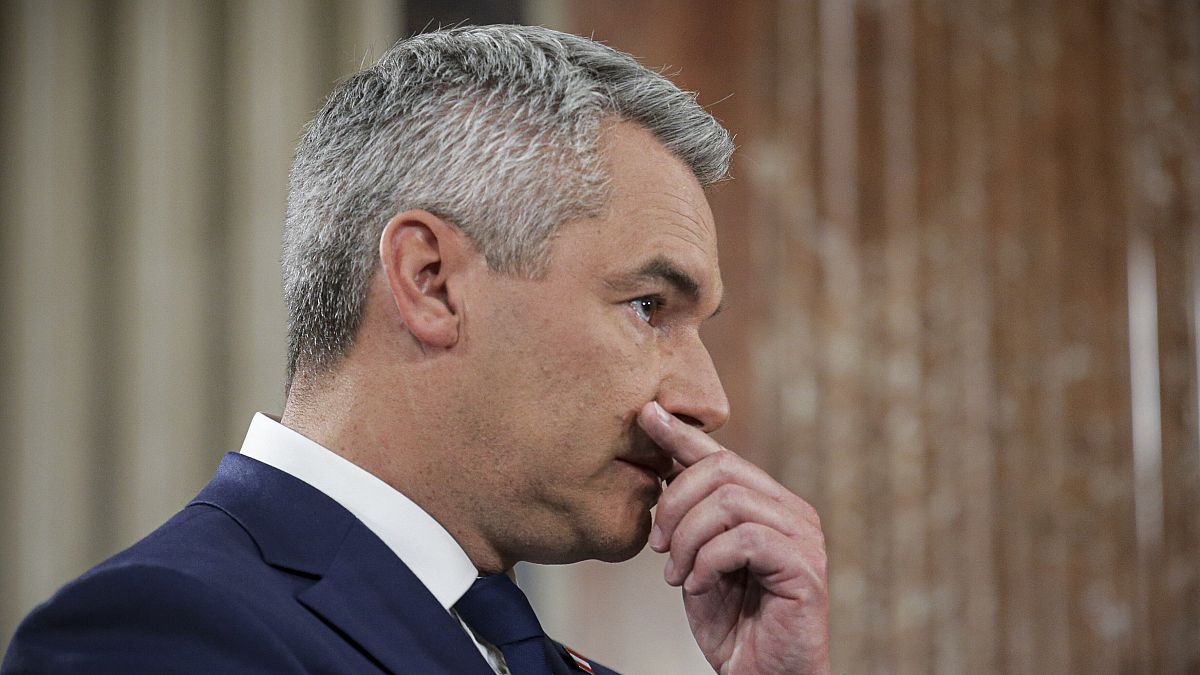Austrian Chancellor Karl Nehammer has announced his resignation following failed coalition talks in the aftermath of the September election. The main parties, including the Austrian People’s Party (ÖVP) and the Social Democrats (SPÖ), have been unable to come to an agreement with right-wing Freedom Party (FPÖ) leader Herbert Kickl, who won 29.2% of the vote. The failure of negotiations has led to uncertainty in Austria’s political landscape as the country faces critical economic challenges.
After the withdrawal of the liberal Neos party from discussions, the ÖVP and SPÖ attempted to forge a three-party ruling coalition. However, disagreements on key points, such as economic competitiveness and tax policies, ultimately derailed the talks. Nehammer cited “destructive forces” within the SPÖ as a major obstacle to reaching an agreement. Social Democrat leader Andreas Babler expressed regret over the breakdown of negotiations, particularly in addressing the record deficit left by the previous government.
The inability of the main parties to form a coalition government has raised the possibility of new elections in Austria. The FPÖ, whose leader Kickl was rejected as a coalition partner, has seen a rise in their support according to recent opinion polls. The challenge facing Austria’s next government will be significant, as the country grapples with a large budget deficit, high levels of unemployment, and falling into a recession for the past two years. The EU Commission estimates Austria must save between €18-24 billion to meet budgetary requirements.
The prolonged coalition talks in Austria have been attributed to the refusal of all other parties to work with FPÖ leader Herbert Kickl, who emerged as the election frontrunner. Kickl criticized the main party leaders for wasting months on a “Kickl prevention strategy” instead of focusing on forming a stable government. The failure to establish a working coalition has left Austria in a state of political uncertainty, with new elections likely to be called in the future. The lack of consensus on key economic issues has further complicated the situation.
Despite efforts to reach an agreement, the breakdown in coalition talks suggests deep divisions among Austria’s political parties. The inability to address critical issues such as the budget deficit and economic competitiveness highlights the challenges facing the country’s next government. The resignation of Chancellor Nehammer underscores the urgency of finding a viable solution to Austria’s economic woes and political instability. The prospect of new elections looms large as Austria grapples with the aftermath of the failed coalition negotiations. In the midst of economic uncertainty and political turmoil, Austria faces a challenging road ahead in establishing a path towards stability and growth.











